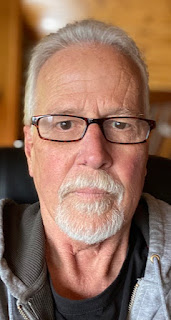The Long Way Home--it's the people stupid
A couple of weeks ago, I wrote about my capitalist leanings. Today, let’s talk about small businesses.
According to the experts, one out of every five business startups will close in the first year. Experts like to call them failures, but sometimes they close for other reasons. More than half will be gone by year five. So business success--defined as having the wherewithal to stay around--is not a sure thing.
People start or buy small businesses for many reasons. To be your own boss. To hire and fire at will. To earn an above-average income. To build a legacy for your family. To follow your passion. To have job security--who’s going to fire you? Besides customers and vendors?
With your own business, it doesn’t take long for reality to sink in. For all the good things, small business is hard. Damned hard.
If you’re doing it right, to get past the five-year survival mark, the hours you work will be long. The fun times with outside activities you had like a mere employee of someone else will be much harder to fit into your schedule. Financial stress is almost overwhelming. You lie awake at night going over all the ways you might go broke. Your biggest customer could go away. The bank might call your loan. A lawsuit could suck the life--and nest egg out of you. Your biggest vendor has you by the short hairs. A large account may file bankruptcy while owing you thousands.
Then, you recognize that not only are you responsible for the life of you and your family, but you also have a moral obligation to think about the life of your employees and the families that depend on them. And if those employees don’t match well with the job they are doing, you’ll lie awake pondering whether to fire, reassign, or ignore the problem. No matter what, you are always aware that many other people depend on you, to do right and be right.
In a nutshell, owning a small business means that you need good people skills above all else. Most of us don’t have those skills when starting in business--and too many don’t have them many years into business ownership.
Literally, thousands of books have been written to tell you how to succeed in business. There is no end to seminars, webinars, and experts taking your money and telling you how to succeed in business. I’m convinced that most of those books and seminars are malarkey. If the attrition rate of small businesses goes to half gone in five years, then small business owners need something more.
I recommend two books to help business owners build people skills. Both books were written by successful capitalists who are long dead.
“How to Win Friends and Influence People” was written by Dale Carnegie during the height of the Great Depression. It makes clear that no matter your endeavors, how you interact with people will make all the difference. I first read this book in the 1970s and its principles stuck with me ever since.
“The Autobiography of Ben Franklin” by one of our nation's founders, Ben Franklin. In Franklin’s life, you see his genius for all things mechanical. More importantly for today’s business owner, you can see how he used his connections with all kinds of people and how he treated them, whether those people were in a position to benefit him personally or not.
Two books that emphasize three keys to business success--fair dealing, the connections you make with others, and how you treat the people you employ and serve. To paraphrase Clinton’s man James Carville, it’s the people stupid.

Comments
Post a Comment